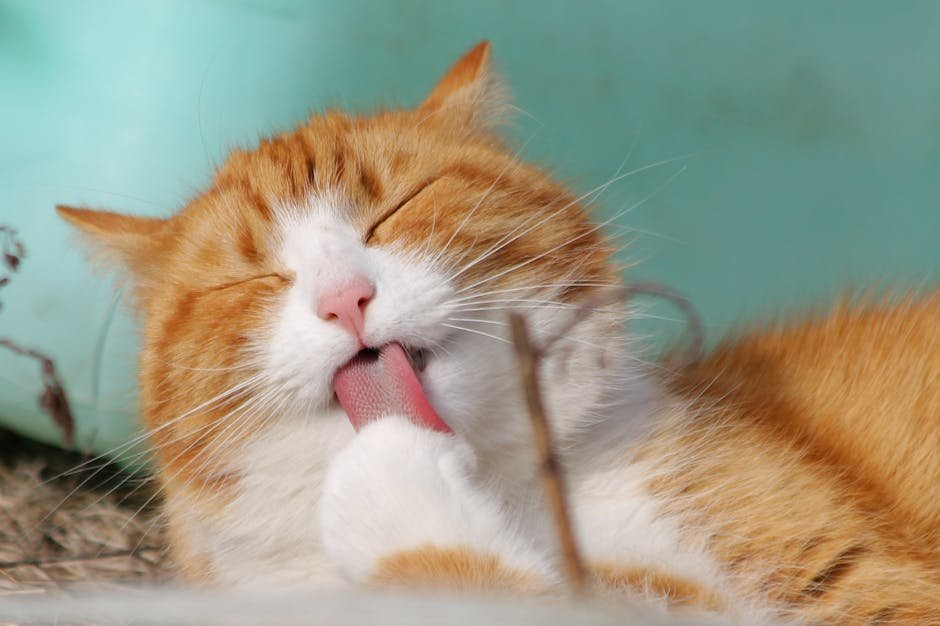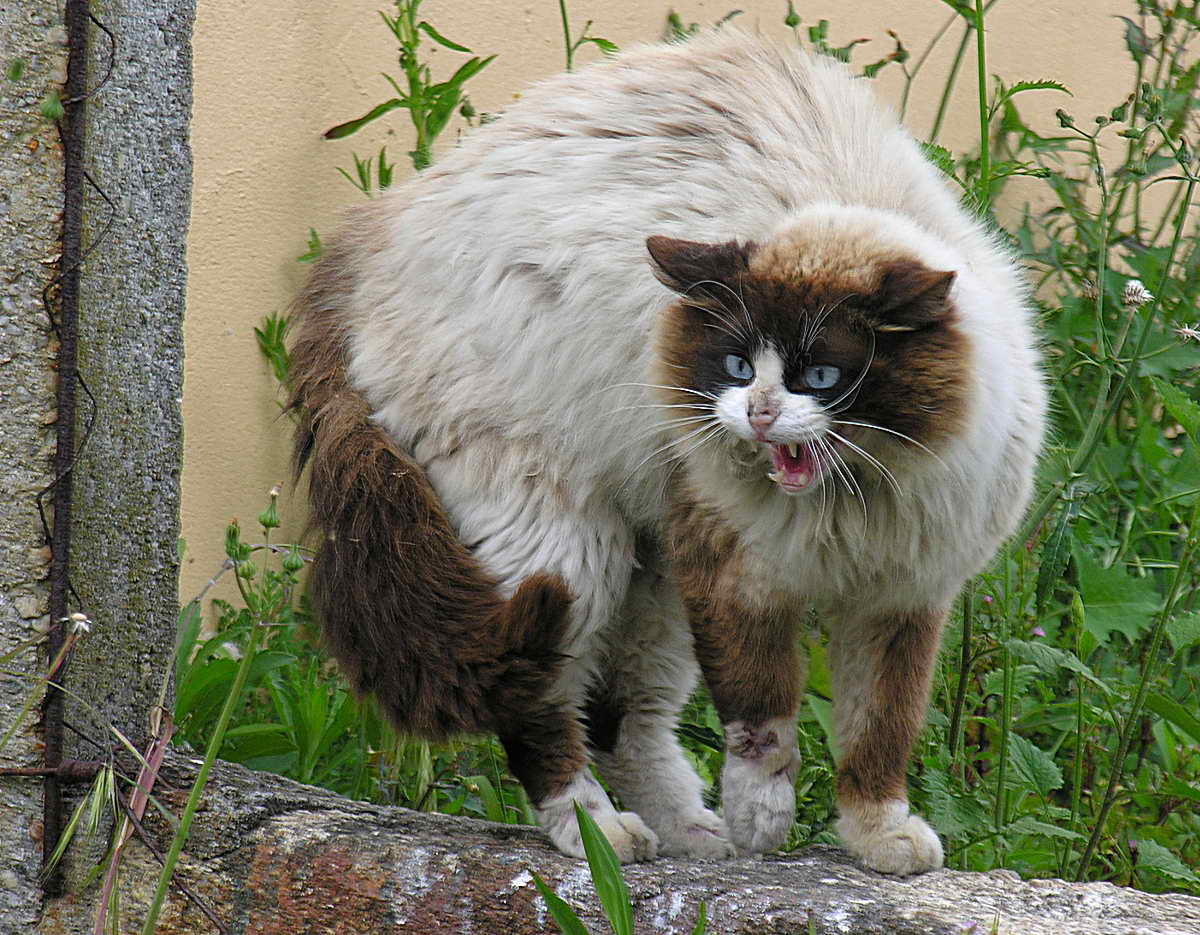Understanding whether your feline friend is getting enough mental stimulation is crucial for their overall well-being. Just like humans, cats require mental challenges to stay happy and healthy. When a cat’s mind is engaged, they are less likely to engage in destructive behavior. But how can you tell if your cat is mentally satisfied? Let’s explore some signs and methods to ensure your kitty is mentally stimulated.
Recognizing Signs of Boredom

Cats can sometimes become bored, just like us. If your cat is constantly napping or seems unusually lethargic, it might be a sign they’re not getting enough mental stimulation. A bored cat might also start over-grooming or develop other compulsive habits. It’s like when we keep checking our phones out of sheer boredom. Cats need their version of entertainment to keep their minds active.
Understanding Your Cat’s Behavior

Cats communicate through their behavior, and unusual actions can be a cry for mental engagement. If your cat starts scratching furniture more than usual or becomes more vocal, it’s their way of saying they need something more. They might also start knocking things off tables or exploring places they usually avoid. It’s similar to a child acting out to get attention. Paying attention to these cues can help you address their mental needs.
Interactive Playtime Importance

Interactive playtime is essential for cats as it mimics hunting, which is an innate behavior. Using toys like feather wands or laser pointers can stimulate your cat’s mind and keep them engaged. Think of it as a workout for their brain. Just a few minutes of interactive play each day can make a significant difference in their mental well-being.
Enriching the Home Environment

Creating an enriching environment for your cat is like setting up a playground for a child. Adding cat trees, scratching posts, and window perches can provide them with opportunities to climb and explore. You can also rotate toys to keep things fresh and exciting. A stimulating environment can prevent them from feeling cooped up and bored.
The Role of Puzzle Toys

Puzzle toys are an excellent way to challenge your cat’s mind. They require your cat to think and work to get a treat or toy, which can be very satisfying for them. It’s like solving a crossword puzzle for us. These toys can keep your cat occupied and mentally stimulated for hours, reducing the likelihood of boredom-related behaviors.
Observing Changes in Appetite

A sudden change in your cat’s appetite can be a sign of mental distress. If your cat is eating more or less than usual, it might be because they are bored. Just as we sometimes eat out of boredom, cats might do the same. Monitoring their eating habits can help you determine if they need more mental engagement.
Encouraging Exploration

Cats are naturally curious creatures, and encouraging exploration can keep their minds active. You can hide treats around the house or create obstacle courses to pique their interest. It’s similar to an Easter egg hunt for kids. Allowing them to explore new areas of your home can also provide them with mental stimulation.
The Power of Social Interaction

Social interaction can be a powerful tool in keeping your cat mentally stimulated. Spending time with your cat, whether it’s through petting or talking to them, can provide them with the mental engagement they need. It’s like having a conversation with a friend. Cats are social animals, and they thrive on interaction with their human companions.
Monitoring Sleep Patterns

While cats do love to sleep, excessive sleeping can be a sign of boredom or depression. If your cat is sleeping more than usual, it might be because they aren’t getting enough mental stimulation. It’s like when we hit the snooze button repeatedly just because we have nothing else to do. Ensuring they have plenty of activities can help regulate their sleep patterns.
Introducing New Experiences

Introducing your cat to new experiences can be a great way to stimulate their mind. Whether it’s a new toy, a new scent, or even a new routine, these changes can keep your cat engaged. It’s similar to trying a new hobby or learning something new. Cats are curious by nature, and new experiences can satisfy that curiosity.
Recognizing Destructive Behavior

Destructive behavior, such as shredding curtains or knocking over plants, can be a sign that your cat is not mentally stimulated. It’s their way of finding something to do. Providing them with appropriate outlets for their energy, like toys or scratching posts, can help curb this behavior. It’s like channeling a child’s energy into sports to prevent them from bouncing off the walls at home.
Using Technology for Stimulation

With technology advancing, there are now apps and videos designed specifically for cats. These can be a fun and engaging way for your cat to get some mental stimulation. It’s like watching a captivating movie or playing a video game. Even a few minutes of screen time can provide your cat with the mental engagement they need.
Observing Grooming Habits

Cats are meticulous groomers, but over-grooming can be a sign of stress or boredom. If you notice bald patches or excessive grooming, it might be time to introduce more mental challenges. It’s like biting your nails out of anxiety or boredom. Keeping your cat’s mind occupied can reduce these behaviors.
Recognizing Vocalization Changes

Changes in vocalization can also indicate a need for more mental stimulation. If your cat becomes more vocal or starts making unusual sounds, it might be their way of asking for more engagement. It’s like when we talk more when we’re bored or anxious. Listening to your cat’s vocal cues can help you determine their mental needs.
Routine Variation Benefits

Cats thrive on routine, but a little variation can keep things interesting for them. Changing up their feeding times or introducing new activities can provide mental stimulation. It’s like taking a different route to work for a change of scenery. Small changes can make a big difference in your cat’s mental well-being.
The Importance of Outdoor Time

If possible, allowing your cat some outdoor time can be incredibly stimulating. The sights, sounds, and smells of the outdoors can provide them with a wealth of mental stimulation. It’s like a mini vacation for their senses. However, always ensure that outdoor time is safe and supervised.
Recognizing Anxiety Symptoms

Anxiety in cats can manifest as hiding, aggression, or excessive vocalization. These behaviors might indicate a lack of mental stimulation. It’s similar to how we might feel anxious when we’re not engaged or have too much idle time. Providing your cat with mental challenges can help alleviate these symptoms.
Using Scent for Stimulation

Cats have a strong sense of smell, and using different scents can keep their minds active. You can introduce new scents through toys or even safe essential oils. It’s like lighting a scented candle to create a calming atmosphere. Different scents can intrigue your cat and provide mental engagement.
Providing Companionship

Sometimes, introducing another pet can provide your cat with the mental stimulation they need. Having a playmate can keep them engaged and prevent boredom. It’s like having a sibling to play with. However, always ensure that the introduction is gradual and monitored to prevent any stress.
In conclusion, ensuring your cat is getting enough mental stimulation is vital for their happiness and health. By observing their behavior and making small changes, you can create an enriching environment that keeps their mind active and engaged.
Hi, I’m Bola, a passionate writer and creative strategist with a knack for crafting compelling content that educates, inspires, and connects. Over the years, I’ve honed my skills across various writing fields, including content creation, copywriting, online course development, and video scriptwriting.
When I’m not at my desk, you’ll find me exploring new ideas, reading books, or brainstorming creative ways to solve challenges. I believe that words have the power to transform, and I’m here to help you leverage that power for success.
Thanks for stopping by, Keep coming to this website to checkout new articles form me. You’d always love it!





